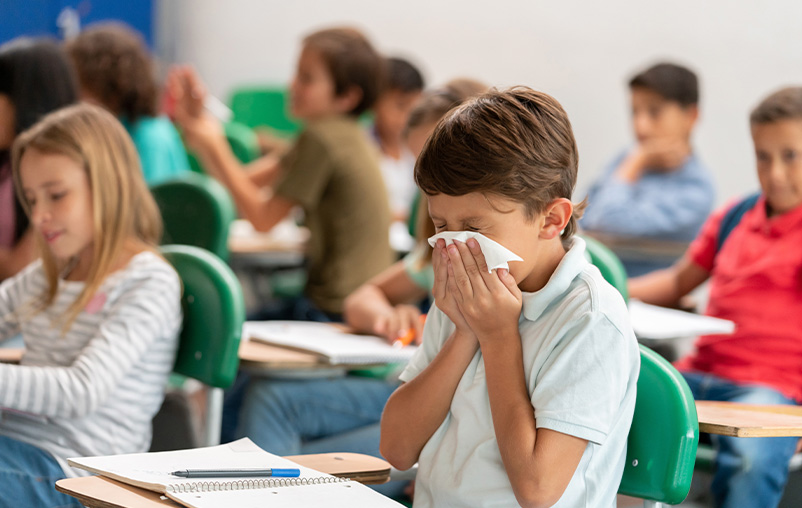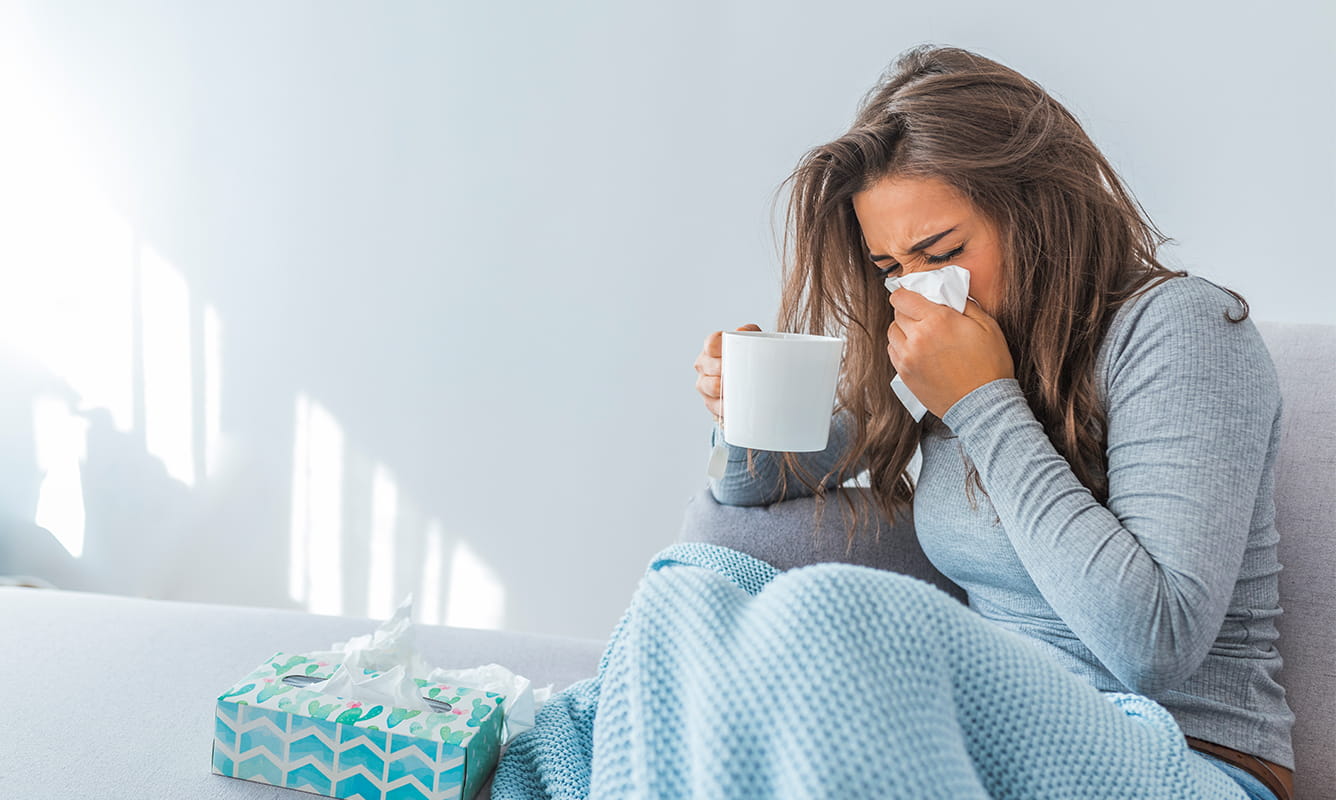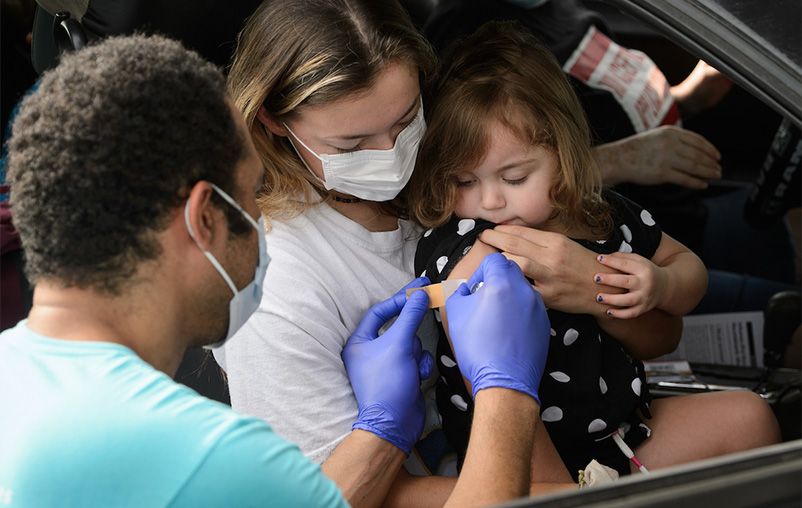Dr. Bryan Alsip discusses omicron infection and treatment, "flurona", and why you shouldn’t try to get COVID-19 just to “get it over with."
How does Paxlovid, the Pfizer COVID-19 pill, work, and when will it be available?
Paxlovid is the medication Pfizer has introduced to treat symptomatic COVID-19. It works by binding two protease, which is an enzyme that the virus needs for replication. Taking that out of action prohibits the virus from replication.
It would be used similarly to how we use Tamiflu for patients with influenza. We'd use it early in the course of illness for several days. It’s a five-day course, a couple times a day. That could reduce your progression of severity.
It could reduce your risk of hospitalization or death. So it can be one of the more useful tools we have to treat symptomatic patients who have COVID-19.
Its availability will be regulated initially through the federal government and states. They will determine specific allocations. I don’t believe you can request a specific number, or they will make some decisions about that allocation. Then the expectation is that those who receive doses of Paxlovid have to report use similar to what we’ve done with vaccines.
Data will have to be shared as to how much of it you’re actually using. We don’t yet know when that will be available, and we certainly don’t yet know when it will be widely available, but we’re looking forward to having it.
If someone tests positive and has no symptoms, how should they quarantine or isolate if they live with others?
The recommendations for different populations vary, but if you’re specifically looking at what to do while in quarantine, they’re fairly consistent. You want to be isolated physically as much as possible from other individuals in that household. Although that’s a challenge to do, it’s important if you want to reduce the risk of transmission.
That means wearing a mask at all times unless you’re alone in a closed room, not sharing household items, not eating together, because that could put people at high risk.
It’s diligent physical isolation and being very attentive to do everything you can to minimize the risk of transmission.
Can you tell which COVID-19 variant you have from the symptoms?
At this point, no, because it depends on the individual’s response to the virus. Any individual could respond differently. One person could have very low-grade symptoms, another person might have very severe symptoms.
We’ve seen with omicron that those symptoms appear to be more mild in general and more consistent with things we would see for other respiratory illnesses or even allergies. We're not seeing as much of the earlier, more concerning symptoms like fever, shortness of breath and severe cough.
Those can also occur with omicron, but you can’t really rule out a particular variant simply by the symptoms.
How can you tell omicron from the flu, or omicron from seasonal allergies?
You can’t tell by symptoms alone. A PCR test could determine whether you’re infected with influenza or with COVID-19 or both. But it requires a specific test to determine what kind of viruses you might be infected with.
Unfortunately, we’re seeing a lot of other respiratory viruses go up along with flu — rhinovirus, enterovirus, adenovirus, human metapneumovirus, even the non-COVID coronaviruses, which are increasing. The only thing we’ve seen a decrease in fairly recently is RSV to some extent, which is a little unusual.
But we did have an out-of-season peak earlier last year. For the most part there’s so many other respiratory viruses that are in circulation right now. People who have COVID-like symptoms could have one of those as well.
How much of a concern is “flurona” co-infection with both COVID-19 and flu?
It’s concerning. The good news is from last season we didn’t see a lot of laboratory-confirmed flu. I think a majority of that had to do with the behaviors that people were exhibiting. Diligent mask-wearing and distancing were a lot more prevalent a year ago than they are this time of year.
That said, we’re already seeing higher numbers and higher rates of influenza in our community that we’ve confirmed through our own laboratory.
This means you could theoretically be co-infected with both viruses. We don’t know if that in and of itself could make it more severe, but certainly your body having to fight off two different respiratory viruses at the same time is something you’d want to avoid.
Can you get omicron and delta at the same time?
Yes. There have been studies to document that you can have two different variants of SARS-CoV-2 at the same time. It’s probably not something that would be a more severe case, clinically. We don’t know.
It takes a very special situation to be able to determine that because you’d have to sequence both viruses from samples from an individual patient, which is not something that’s regularly done.
But with overlap of the prevalence of one variant with another, it’s certainly possible that an individual could be co-infected with both variants at the same time.
If Omicron is milder, shouldn’t we just get it and get it over with?
Absolutely not. There’s a lot we don’t know about this virus, and we don’t know the long-term effects of coronavirus because we’ve only been dealing with this variant, SARS-CoV-2, for about two years now. So trying to avoid infection to avoid long-term effects of what we’re calling "long COVID" is something that’s worth doing.
Similarly so, every individual has a different response to being infected. At a population level, we’re seeing a smaller percentage of individuals that are having severe illness as compared to the delta variant. Any individual patient can get severe disease.
In fact, we’re having patients still admitted to our hospitals. We know our hospitalization rates are going up.
Omicron is probably the dominant, if not the only variant we’re seeing in our community, so it’s contributing to increased hospitalizations. We’re still seeing mortalities.
We know that omicron in and of itself can still cause hospitalization, severe disease and death.
Do we expect this wave to be different form the last three?
I don’t think we can predict that. But there’s a hope that this wave could be different, and some of that is based on the trends we’re seeing come out of South Africa where the virus was originally identified. They have started to see a decline in the frequency of their cases. In fact, it’s a rapid decline.
If that happens similarly here, it would potentially mean we have a surge that’s of shorter duration and perhaps one that comes down fairly quickly. What we don’t yet know is how high that peak will go and if it will truly be a shorter period.





